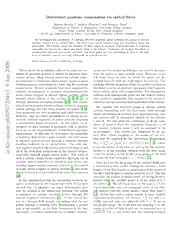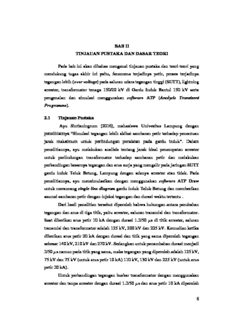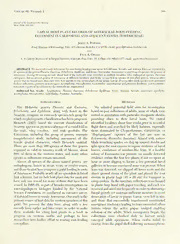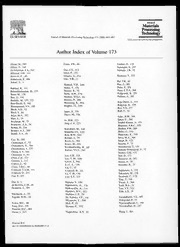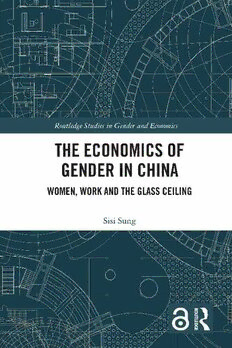
The Economics of Gender in China: Women, Work and the Glass Ceiling PDF
Preview The Economics of Gender in China: Women, Work and the Glass Ceiling
The Economics of Gender in China China’s rapid socioeconomic development has achieved remarkable equalizing conditions between men and women in the aspects of health, education, and labor force participation, but the glass ceiling phenomenon has become more prominent. The book develops a cross-disciplinary paradigm, with economics at its core, to better understand gender in China and women in management in the Chinese business context. The theoretical perspective integrates the knowledge and evidence from cognate disciplinary strands, such as economics, sociology, management studies, and the Chinese literature, into one unifed framework. In-depth interviews with managers in China’s largest enterprises complement the theoretical perspective with rich empirical details to examine women’s managerial experiences and career choices. The book’s argument sheds light on the power of stereotypes that specify women’s roles in the family, organization, and society. It shows that understanding the socio-psychological and organizational dynamics of stereotyping in the Chinese context, as well as how Chinese women make career decisions, recognizing and deploying these expectations, provides new perspectives on the underrepresentation of women among business leaders in China. The book ofers multidisciplinary evidence on the economics of gender in China that is highly relevant for gender studies in general, and across a number of subject areas, and it can be used in any setting as an introductory reference. Sisi Sung is a postdoctoral fellow at the Max Weber Centre for Advanced Cultural and Social Studies, University of Erfurt, Germany, and a research fellow at Tsinghua University, China. Routledge Studies in Gender and Economics Using Fiscal Policy and Public Financial Management to Promote Gender Equality International Perspectives Janet G. Stotsky The Economics of Gender Equality in the Labour Market Policies in Turkey and other Emerging Economies Edited by Meltem İnce Yenilmez and Gül Ş. Huyugüzel-Kişla Technology and Women’s Empowerment Edited by Ewa Lechman The Political Economy of Patriarchy in the Global South Ece Kocabıçak The Economics of Women and Work in the Global Economy Edited by Reyna Elizabeth Rodríguez Pérez and David Castro Lugo The Economics of Gender and Sport A Quantitative Analysis of Women’s Cricket Vani Kant Borooah The Economics of Gender in China Women, Work and the Glass Ceiling Sisi Sung For more information about this series, please visit www.routledge.com/ Routledge-Studies-in-Gender-and-Economics/book-series/RSGENECON The Economics of Gender in China Women, Work and the Glass Ceiling Sisi Sung First published 2023 by Routledge 4 Park Square, Milton Park, Abingdon, Oxon OX14 4RN and by Routledge 605 Third Avenue, New York, NY 10158 Routledge is an imprint of the Taylor & Francis Group, an informa business © 2023 Sisi Sung The right of Sisi Sung to be identifed as author of this work has been asserted in accordance with sections 77 and 78 of the Copyright, Designs and Patents Act 1988. The Open Access version of this book, available at www.taylorfrancis. com, has been made available under a Creative Commons Attribution- Non Commercial-No Derivatives 4.0 license. Trademark notice: Product or corporate names may be trademarks or registered trademarks, and are used only for identifcation and explanation without intent to infringe. British Library Cataloguing-in-Publication Data A catalogue record for this book is available from the British Library Library of Congress Cataloging-in-Publication Data Names: Sung, Sisi, author. Title: The economics of gender in China : women, work and the glass ceiling / Sisi Sung. Description: Milton Park, Abingdon, Oxon ; New York, NY : Routledge, 2023. | Includes bibliographical references and index. Identifers: LCCN 2022017552 (print) | LCCN 2022017553 (ebook) | ISBN 9781032309941 (hardback) | ISBN 9781032309958 (paperback) | ISBN 9781003307563 (ebook) Subjects: LCSH: Women—Employment—China. | Women—Economic conditions—China. | Glass ceiling (Employment discrimination)—China. Classifcation: LCC HD6200 .S86 2023 (print) | LCC HD6200 (ebook) | DDC 331.40951—dc23/eng/20220419 LC record available at https://lccn.loc.gov/2022017552 LC ebook record available at https://lccn.loc.gov/2022017553 ISBN: 978-1-032-30994-1 (hbk) ISBN: 978-1-032-30995-8 (pbk) ISBN: 978-1-003-30756-3 (ebk) DOI: 10.4324/9781003307563 Typeset in Bembo by Apex CoVantage, LLC Contents Foreword vi Preface ix 1 Introduction 1 2 Economics of Gender 7 3 Gender, Business Organization, and Culture 32 4 Women in China 69 5 Workplace in China 118 6 Gender Stereotypes in Chinese Enterprises 144 7 Work, Family, and Women in Management 176 8 Guanxi and Women in Management 194 9 Conclusion 219 Index 224 Foreword In the decades after opening their frst stock markets in 1990, Chinese frms have emerged as global leaders. In 2021, China led the way in the production of electric vehicles as well as in the development of self-driving cars and smart city innovations. They have been pathbreakers in e-commerce, and for almost a decade, Chinese consumers have routinely used their phones for contactless payments. But dynamic progress has not been limited to the economy; one also sees huge gains in human capital, most notably in an astounding increase in college enrollments. In 1990 less than 2% of the adult population had a college degree; 25 years later it exceeded 15%. Most astounding has been the explosive growth of educational opportunities for those born after 1980. In 1990 3.4% of the college-age group was in college by 2000 it had risen to 12.5%, and by 2020 to 54%.1 And as Sisi Sung documents, over these past two decades of rapid expansion of college enrollments, women reached parity with their male peers. Moreover, because for several generations the vast majority of women, including married women with children, worked full time outside the home, women’s economic contributions have long been critical to the well-being of their families and the health of the economy. But in the past ten years, a new demographic challenge has further highlighted the vital role of women in the workplace. In 2020 17.4% of the population was 60 or older; by 2030 that percentage is predicted to reach or exceed 25%.2 Thus within less than a decade China will not only have the highest number of elderly in the world but because few over age 60 will be fully employed, the percentage of the population who are no longer in the labor force will skyrocket. Simultaneous with the rapid aging of the population is a decline in the num- ber of new entrants to the workforce. Not only did 30 years of a one-child pol- icy shrink the size of new birth cohorts but the rapid increase in post-secondary enrolments means that as older workers retire the workforce will shrink. Under these conditions, the economy will become ever more dependent on maintaining high levels of labor force participation among married women, and in particular dependent on the employment of highly qualifed college graduates working in managerial and professional positions. Yet in 2021 the Foreword vii World Economic Forum ranked China 107th of 156 countries in their Gender Equality Index.3 Moreover, 2021 marked the thirteenth year in which China’s rank declined, and of particular note was the low representation of women in leadership positions in the corporate sector. To explain the failure of women to translate their advanced educational cre- dentials into workplace leadership, economist Sisi Sung ofers a path-breaking analysis of the rarely studied case of “glass ceilings” in China. Through mastery of scholarly debates in English and Chinese, Sung brings the Chinese experi- ence into dialogue with a literature that has generally focused exclusively on the challenges of college-educated women in the United States and the United Kingdom. In addition, she stretches beyond discussions of the characteristics and policies of the frm to incorporate broader cultural and sociological dimensions. As an author, Sung is also in the vanguard of the discipline of economics. In her analysis, assumptions about the primacy of individual utility maximization and the power of statistical discrimination are foundational. But building on the work of Nobel laureate George Akerlof and his coauthor Rachel Kranton,4 Sung frames her project in terms of the economics of identity. As a result, she systematically explores and evaluates the various ways a societally constructed sense of self and personal obligation is central to explaining why women are largely absent at the apex of the Chinese corporate workplace. Further deepening her analysis and establishing her own original voice, Sung goes beyond Akerlof and Kranton, by integrating Judith Butler’s theory of performativity and Nan Lin, Yanjie Bian, and Mayfair Yang’s discussions of the Chinese relationship practices of guanxi.5 Because Sung foregrounds both the motivations and consequences of interpersonal dynamics, individual choice and agency are critical not tangential to explaining women’s failure to be promoted to positions of authority and leadership. The metaphor of a glass ceiling has long been used to explain persistent gender diferentials in leadership, but in this monograph, Sung adds analytic rigor by foregrounding the larger framing from the economics of identity and by expanding its application to the experience of Chinese women working in the corporate sector. Through masterful integration of theory and evidence, she deftly creates dialogue with previous scholarship while incorporating extended examples from her own feldwork and deep knowledge of Chinese history. Undoubtedly, Sung herself will soon become an essential interlocutor for those who follow her. Deborah Davis New Haven, Connecticut April 10, 2022 “In a remarkable synthesis of economics, sociology, anthropology, of ancient and modern Chinese history, and of Western and Chinese viewpoints, Sisi Sung has given a subtle and convincing characterization of the position of women in present-day China. The Economics of Gender in China should be read by everyone who wants to see social science at its very best, including, of course, all those with special interest in studies of gender and Chinese culture”. – George Akerlof, Nobel Laureate in Economics, 2001 “This is an important monographic account of the role of women in the contemporary economy, society, family and workplace in China from a multi- disciplinary perspective. It captures the opportunities and barriers to women’s managerial career advancement comprehensively, which contributes to the global agenda of improving gender equality”. – Dr Fang Lee Cooke, Fellow, the Academy of the Social Sciences in Australia, Distinguished Professor, Monash Business School, Faculty of Business and Economics, Monash University “The book is an important work with profound signifcance. It analyzes the underrepresentation of women in China’s management positions and navigates a path to break the glass ceiling such that courageous and competent Chinese women can truly become ‘half of the sky’ among leaders and decision-makers”. – Bohong Liu, Professor, China Women’s University, Former Executive Editor-in-Chief, Journal of Chinese Women’s Studies Preface This book is about the economics of gender. The theme refects a long personal and intellectual journey across geographical and disciplinary boundaries. It started with six years at Ying Wa Girls’ School in Hong Kong, which helped me realize the importance of achieving equality between men and women. As long as men and women enjoyed the same educational opportunities, there would be no limit on anyone’s pursuit of their goals. Soon after, I realized that situations could in fact vary across contexts. I often found myself surrounded by mostly male students in a classroom during my college years in Beijing. It did not seem surprising for female students to be in the minority at this prestigious Chinese science and engineering university. Although I also found myself among a minority of women in a university department of economics in the United States, the situation turned out to be quite diferent. The benefts, in particular economic, resulting from men and women working together in parity had been well recognized by many. During this time I saw female economists working alongside each other and actively striving for equal status in the diverse areas of the profession, namely academia, business, and government. The journey continued when I was working in Germany. The opportunity enabled me to observe the situation of gender equality in a nation headed by a female leader. For the past decades, there has been remarkable progress in gender equality worldwide. The situation of women has improved amid economic develop- ment, and a growing number of women have entered top leadership positions in many countries. Then I realized that the Chinese case manifests an especially interesting dissociation in the performance of gender equality. On the one hand, there has been outstanding progress in achieving equality between men and women in education and health. The gender gap in labor market outcomes, such as labor force participation and wages, has also been narrowing. On the other hand, women’s representation in top leadership positions has dropped from its highest level and stagnated since then. In my frst attempt to dive into the paradox, I was fascinated by the fruitful feld of gender studies focused on China. Despite the various perspectives available, I was also surprised to see how little has been written about women in management in the Chinese context. This encouraged me to start feld research in China and venture work using a unifed economic paradigm to incorporate knowledge and evidence
The list of books you might like

Atomic Habits James Clear

A Thousand Boy Kisses

Haunting Adeline

What Happened to You?

Demographic & economic information for Cascade County

Explaining Economic Backwardness: Post-1945 Polish Historians on Eastern Europe

Elizabeth City State University Catalog
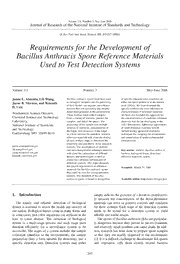
DTIC ADA509405: Requirements for the Development of Bacillus Anthracis Spore Reference Materials Used to Test Detection Systems
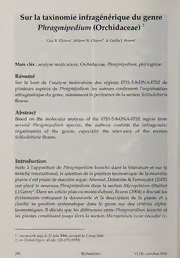
Sur la taxinomie infragénérique du genre Phragmipedium (Orchidaceae)

Capitolul 4.1 Apa
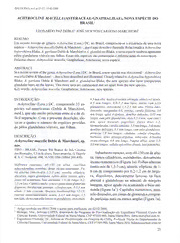
Achyrocline macella (Asteraceae-Gnaphalieae), nova espécie do Brasil

Scientia Magna, book series, Vol. 2, No. 4

Lectures of Sidney Coleman on Quantum Field Theory (Foreword by David Kaiser)
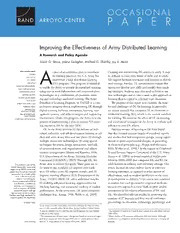
DTIC ADA454635: Improving the Effectiveness of Army Distributed Learning: A Research and Policy Agenda

This Man Confessed

Bulletin des Actes administratifs n°18

New Zealand Listener - June 25, 2022
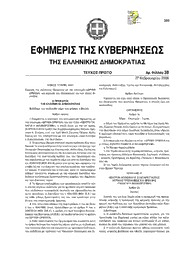
Greek Government Gazette: Part 1, 2006 no. 38
